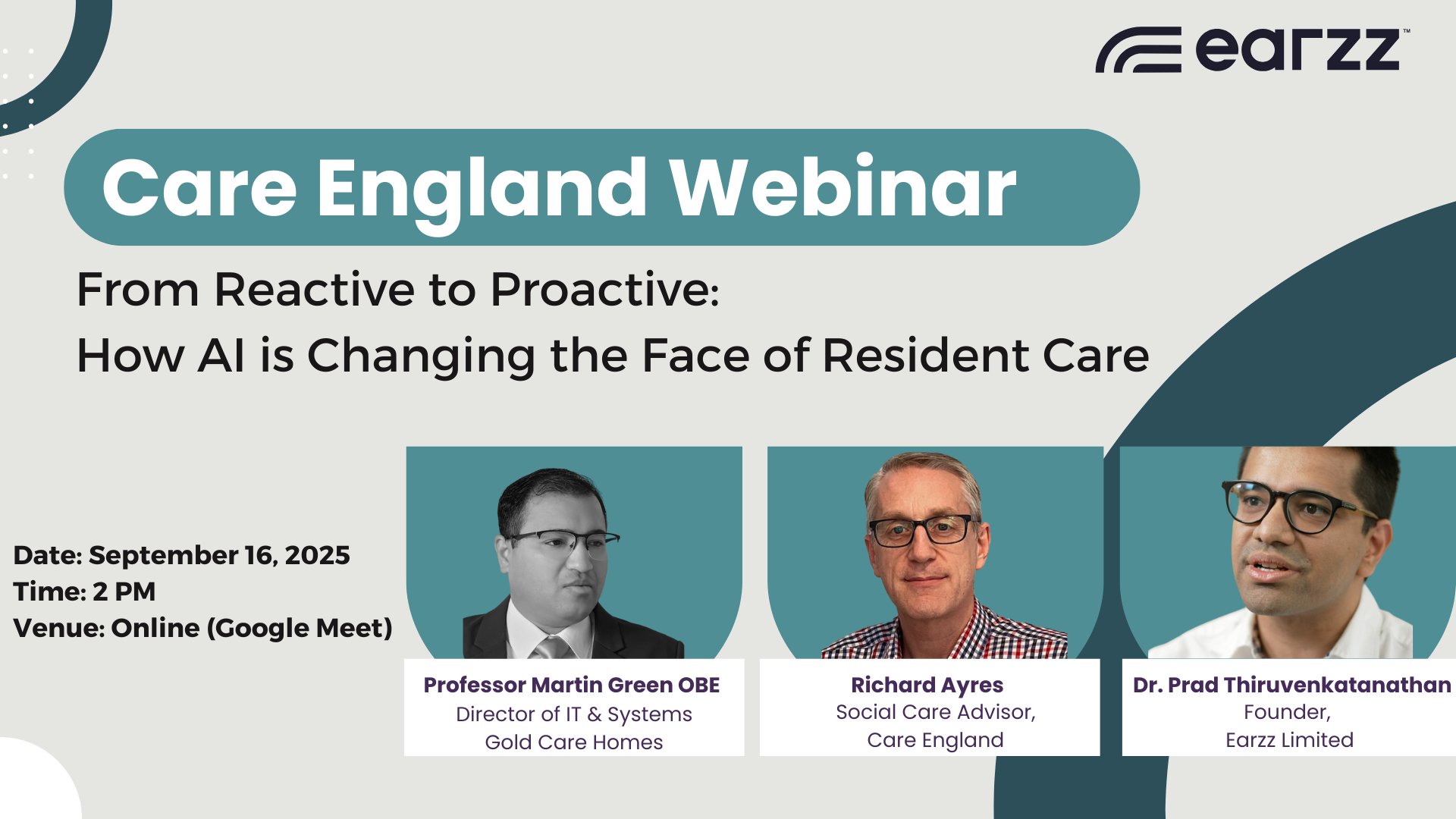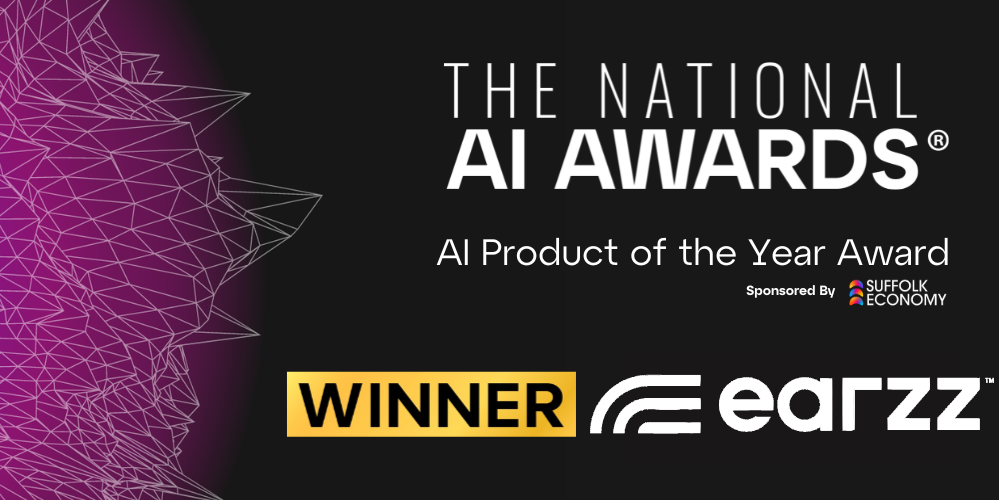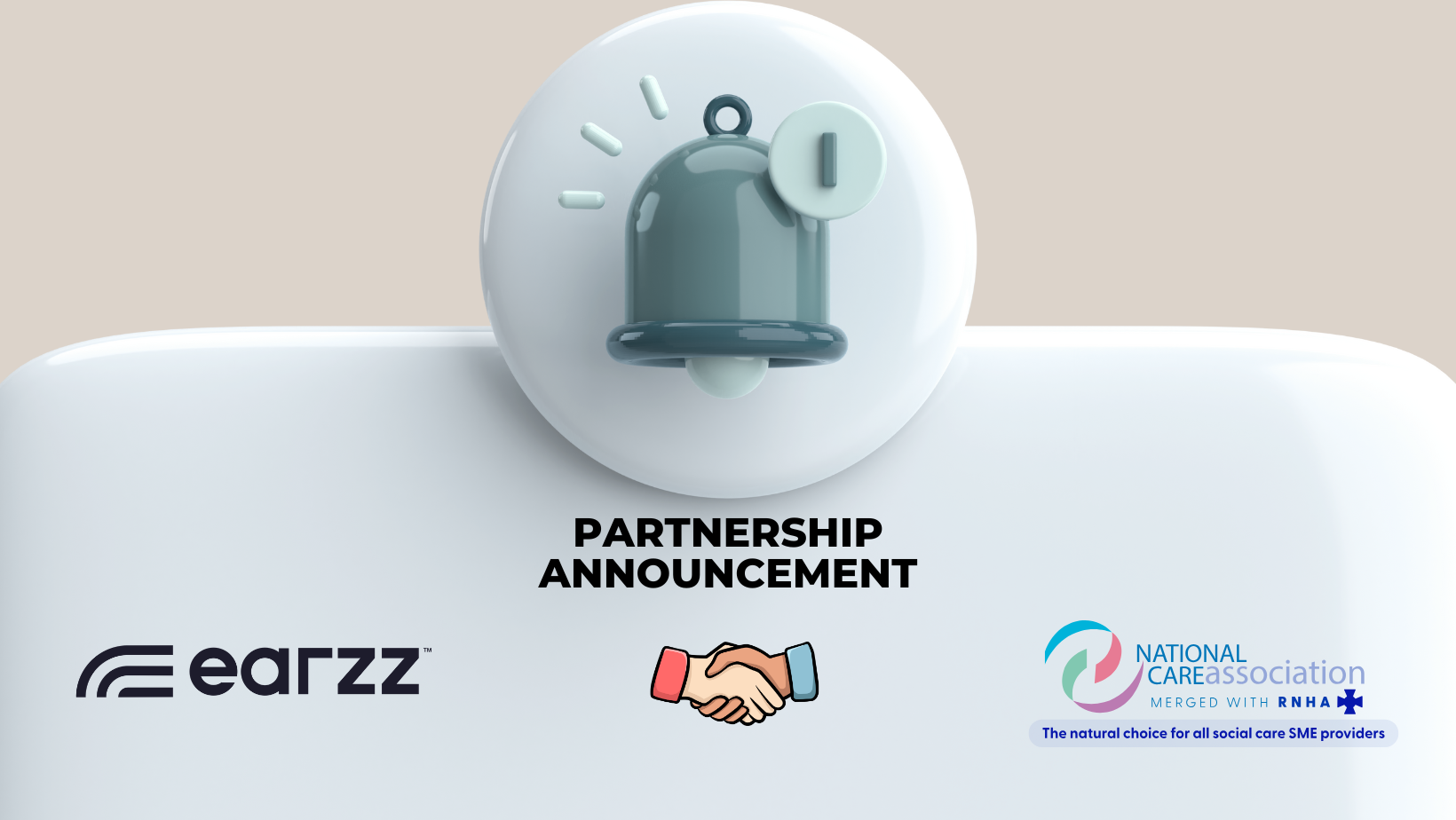
From Reactive to Proactive: How AI is Changing Care Across the UK


The social care sector faces a long-standing challenge, balancing resident safety with dignity, privacy, and carer wellbeing. For many providers, reactive models of care are no longer enough. This was the theme of the recent Care England webinar, “From Reactive to Proactive: How AI is Changing the Face of Resident Care,” hosted in partnership with Earzz and Gold Care Homes.
The Problem:
Falls remain one of the biggest risks in care homes, leading to thousands of hospital admissions every year. Traditional systems depend on residents pressing call bells or staff performing routine checks, but this approach fails those with dementia or limited mobility. It’s reactive by design, responding after incidents occur.
The Solution:
Dr. Pradyumna “Prad” Thiruvenkatanathan, Founder of Earzz, showcased how AI-powered acoustic monitoring is changing this. Earzz devices don’t record or relay sound; instead, they recognise specific noises such as coughing, movement, or shouting. These insights allow carers to act quickly, often before a fall or health deterioration occurs.
During the discussion, Sandeep Panchal, Director of IT and Systems at Gold Care Homes, shared how the technology was piloted across three homes; Lucton House, Manor House, and Brackenbridge House. Within weeks, the homes saw a 100% reduction in falls in some sites and an over 80% overall decrease.
But the impact didn’t stop there. Earzz’s AI also helped with the detection and diagnosis of early onset of sepsis, UTIs, and chest infections by analysing changes in screaming or vocalisation trends, and coughing respectively; enabling clinical teams to intervene early.
Beyond Falls: Smarter, Kinder Care
The partnership also improved staff responsiveness, reducing average response times from six minutes to under two. Night staff reported fewer interruptions, while residents enjoyed longer, more restful sleep. As Panchal noted, “It’s not just about technology preventing falls, it's about improving quality of life for both residents and carers.”
Earzz’s proactive approach marks a shift from surveillance to support. The system helps carers focus on care, not constant checking. It also captures anonymised, factual data that can be used for care planning, CQC audits, and clinical reviews.
The Takeaway:
The session reinforced that proactive care is not about replacing humans, it’s about empowering them. By combining privacy-first AI with person-centred care, providers can create safer, calmer, and more responsive environments.
Watch the full webinar replay: Care England Webinar



